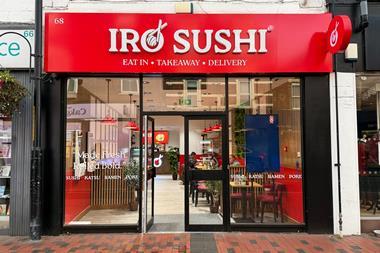Chipolatas, Christmas ham, beef Wellington and pigs-in-blankets could all be off the menu this Christmas.
Meat inspectors have threatened to carry out strikes over the festive season that could bring the meat production industry to a standstill.
The threat of action by Unison, the public sector union that represents 80% of the Meat Hygiene Service's 1,200 inspectors, could mean supermarkets are unable to procure enough UK meat at the busiest time of the year. By law, meat processing plants cannot operate without trained inspectors in place.
Red meat is particularly likely to be affected, although poultry producers have also expressed concern over the situation.
While no strike date has yet been set, Unison said it could stage a 72-hour walkout "in the run up to Christmas". A decision is expected on 21 November, with talks with the MHS scheduled for the following week. A consultative ballot in October showed 83% of members favouring action.
Unison also claimed there was a culture of bullying and harassment in abattoirs, and called on the Meat Hygiene Service to get to grips with the problem.
"If strike action goes ahead, the major meat companies and supermarkets face the loss of millions of pounds in meat production, and a shortage of the traditional Sunday roast," said Unison national office for meat inspectors, Simon Watson.
A spokeswoman for the MHS denied the proposals were based on a "work anytime, work any place" approach and said the service wanted to pay staff fairly for the hours they worked.
She added that the MHS had "contingency plans in place in the event of any industrial action to minimise disruption in the run up to Christmas" but did not reveal what those plans were.
Any strikes would have "significant economic consequences", claimed British Meat Processors' Association director Stuart Roberts. "If the action does go ahead then it'll be a serious concern for us," he said. "December is arguably our busiest time of year, so if the MHS can't provide interim staff there could be severe disruption to the system."
One meat buyer urged the two sides to sit down and resolve the problem as swiftly as possible. "It's obviously not going to be great for the industry, and it's not what you want at times of recession," he told The Grocer. "Christmas should be the big opportunity for the meat industry, and we'd be concerned if it affected the supply base."
The poultry industry's use of poultry inspection assistants (PIAs) means many plants would be able to continue operating without MHS inspectors. "Not even the MHS can spoil Christmas," said NFU chief poultry adviser Robert Newbery. "Any action wouldn't affect our members who slaughter on-farm but it could disrupt larger processing plants."
...but turkey remains on the menu for Christmas
Turkey should still be on the menu for Christmas regardless of the outcome of the inspectors' ballot. Poultry plants generally employ trained poultry inspection assistants (PIAs), who would be allowed to continue operating without MHS inspectors overseeing them, according to the British Poultry Council. Britain's largest turkey producer Bernard Matthews, said its supply would not be affected.
Meat inspectors have threatened to carry out strikes over the festive season that could bring the meat production industry to a standstill.
The threat of action by Unison, the public sector union that represents 80% of the Meat Hygiene Service's 1,200 inspectors, could mean supermarkets are unable to procure enough UK meat at the busiest time of the year. By law, meat processing plants cannot operate without trained inspectors in place.
Red meat is particularly likely to be affected, although poultry producers have also expressed concern over the situation.
While no strike date has yet been set, Unison said it could stage a 72-hour walkout "in the run up to Christmas". A decision is expected on 21 November, with talks with the MHS scheduled for the following week. A consultative ballot in October showed 83% of members favouring action.
Unison unrest
Meat inspectors are unhappy with changes to their terms that will make them work more unsociable hours for less pay, they claim. No date has been set, but Unison expects to make a decision by 21 November. Any strike would probably take place in early December. Red meat would be particularly vulnerable to strike action. Many poultry farms use poultry inspection assistants that do not come under the MHS umbrella.
Unison claimed it was acting after employers refused to pay an agreed rise unless inspectors accepted cuts to overtime payments and switched to a 'work anytime' system. Under the system, inspectors would have to work a 37 hour week at any time between 12.01am on Monday to midnight on Friday, with shifts or workplaces subject to change at short notice.Meat inspectors are unhappy with changes to their terms that will make them work more unsociable hours for less pay, they claim. No date has been set, but Unison expects to make a decision by 21 November. Any strike would probably take place in early December. Red meat would be particularly vulnerable to strike action. Many poultry farms use poultry inspection assistants that do not come under the MHS umbrella.
Unison also claimed there was a culture of bullying and harassment in abattoirs, and called on the Meat Hygiene Service to get to grips with the problem.
"If strike action goes ahead, the major meat companies and supermarkets face the loss of millions of pounds in meat production, and a shortage of the traditional Sunday roast," said Unison national office for meat inspectors, Simon Watson.
A spokeswoman for the MHS denied the proposals were based on a "work anytime, work any place" approach and said the service wanted to pay staff fairly for the hours they worked.
She added that the MHS had "contingency plans in place in the event of any industrial action to minimise disruption in the run up to Christmas" but did not reveal what those plans were.
Any strikes would have "significant economic consequences", claimed British Meat Processors' Association director Stuart Roberts. "If the action does go ahead then it'll be a serious concern for us," he said. "December is arguably our busiest time of year, so if the MHS can't provide interim staff there could be severe disruption to the system."
One meat buyer urged the two sides to sit down and resolve the problem as swiftly as possible. "It's obviously not going to be great for the industry, and it's not what you want at times of recession," he told The Grocer. "Christmas should be the big opportunity for the meat industry, and we'd be concerned if it affected the supply base."
The poultry industry's use of poultry inspection assistants (PIAs) means many plants would be able to continue operating without MHS inspectors. "Not even the MHS can spoil Christmas," said NFU chief poultry adviser Robert Newbery. "Any action wouldn't affect our members who slaughter on-farm but it could disrupt larger processing plants."
...but turkey remains on the menu for Christmas
Turkey should still be on the menu for Christmas regardless of the outcome of the inspectors' ballot. Poultry plants generally employ trained poultry inspection assistants (PIAs), who would be allowed to continue operating without MHS inspectors overseeing them, according to the British Poultry Council. Britain's largest turkey producer Bernard Matthews, said its supply would not be affected.


















No comments yet